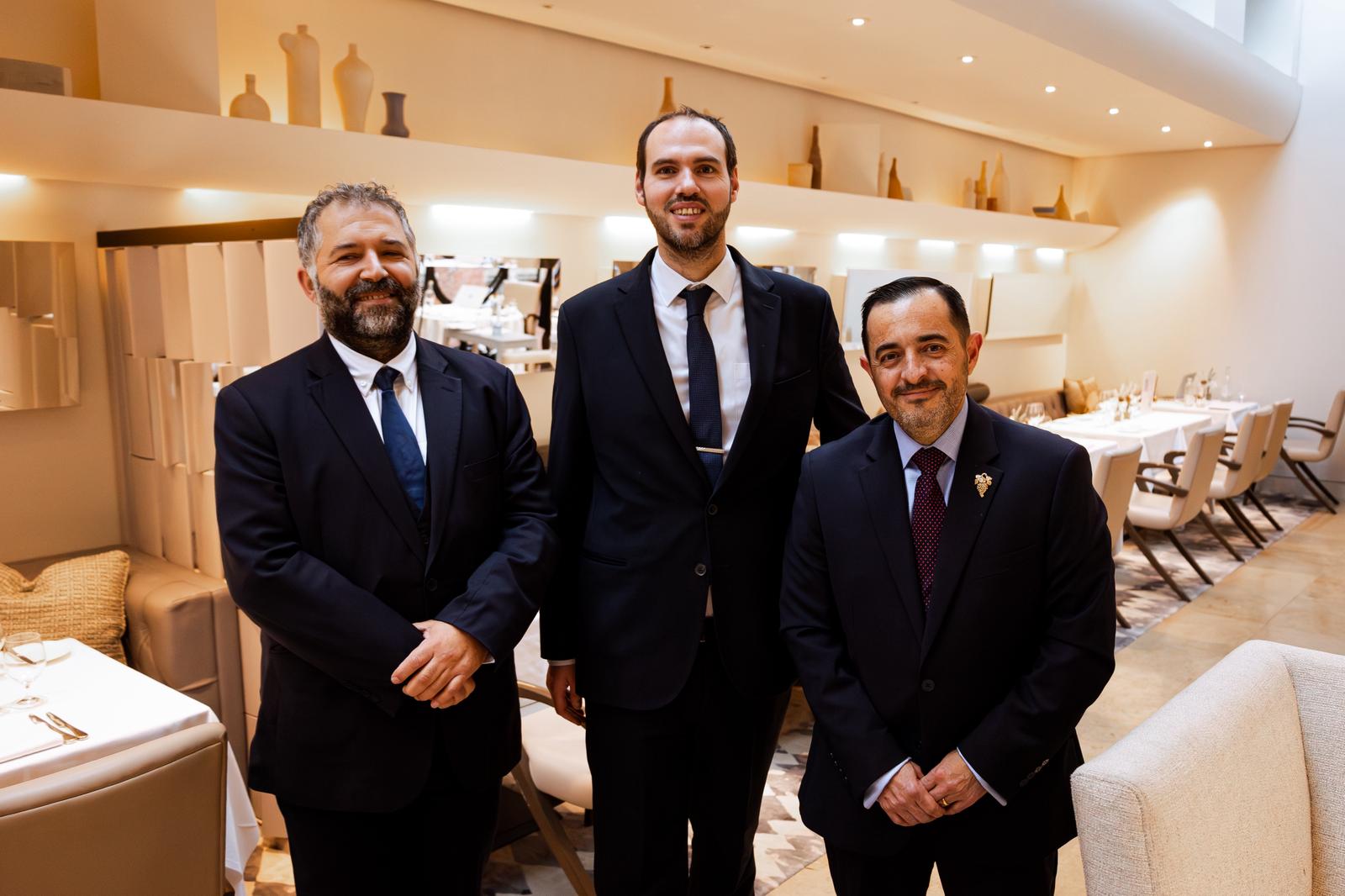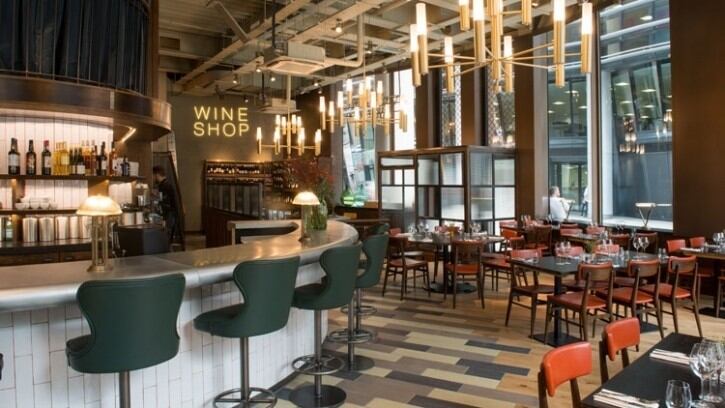For Martin Williams, the journey to taking the reins of The Evolv Collection, previously known as D&D London and before that Conran Restaurants, didn’t just begin in April this year. In fact, it probably starts some years back when he first moved to London.
“The first restaurant I ever went to in the city was Mezzo on Wardour Street,” he recalls, referring to Sir Terence Conran’s famed Soho ‘gastrodome’, which opened back in 1995 and closed in 2016. “I remember being blown away by the theatre of the venue. The design detail, the uniforms, the ashtrays, and the food was outstanding.”
A similar experience followed shortly after at another Conran joint, Quaglino’s; the iconic restaurant and bar in St James’s that originally launched in 1929 and was acquired by Conran Restaurants in 1993. “I wouldn’t say I fell in love with restaurants through those experiences,” Williams adds, reflectively. “But I certainly understood the potential of them.”
Returning to Conran’s vision
We’re sat within the cosy confines of Liverpool Street Chop House & Tavern on a dreary Monday lunchtime. Rain lashes down outside; inside, just a few tables are occupied. Williams notes that Mondays remain tough in terms of trading across Evolv’s estate, which incorporates close to 30 restaurants primarily spread across the UK with an international outpost in New York, but adds that Fridays are noticeably busier post summer, suggesting an evolution to the post-pandemic convention of office workers only attending in person Tuesday to Thursday.
Liverpool Street Chop House & Tavern launched in September, taking over Evolv’s New Street Grill in the City. At the time, Williams described the concept as ‘returning to the founding vision’ of Sir Terence Conran. Indeed, much of the inspiration came from the late restaurateur’s own book: Alcazar to Zinc: The Story of Conran Restaurants. “It was like he had written the DNA of his brands for us, and we were able to go back to that,” says Williams.
Development of the concept came from Conran’s vision for his Butler’s Wharf restaurant that opened in the early 1990s. Working with Calveton and Breal Capital, which acquired Evolv back in 2023 when it was D&D, Williams has invested nearly £500,000 on redesigning the New Street Grill space. Brand historian Ron Cregan, known for his work with Mulberry and The Maybourne Group, has supervised the Chop House & Tavern interiors, which feature dark wood, deep red and blue colours, crisp white linen, brass and gold detailing, and mirrors with gold script.
“There’s a real warmth about it,” says Williams. “It’s very cosy, particularly at night. But there’s enough elements of quality that means it’s not too rustic.”
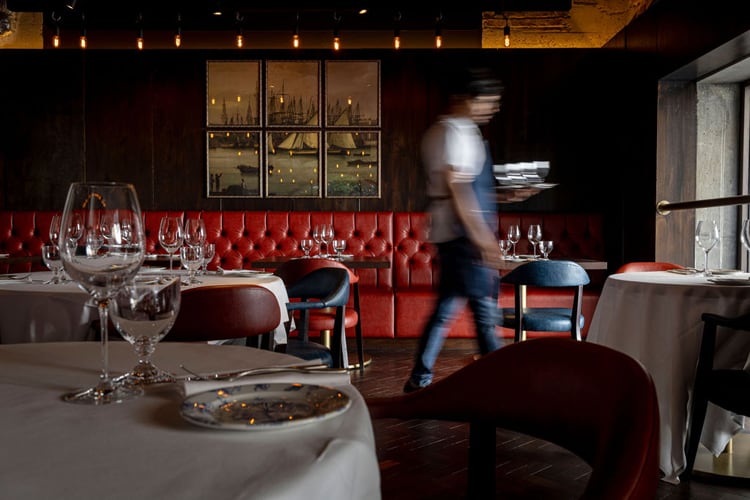
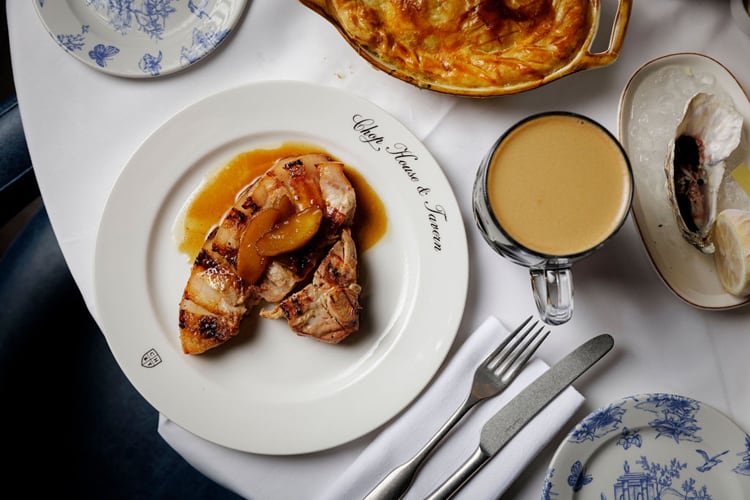
A ‘modern reinterpretation’ of a chop house
To oversee the Chop House and Tavern food offering, Williams has brought in a known quantity in Mike Reid, former culinary director of Gaucho-owner Rare Restaurants, the group previously led by Williams. Changes to the menu, worked on by the pair together, are described as ‘quite dramatic’ and include an emphasis on seasonality and sustainability. All of the meat comes from Ethical Butcher and comes from animals reared using regenerative farming methods; fish and seafood come from Wright Brothers. A seasonal approach to the dish development, meanwhile, will help reduce wastage and maintain margins, Williams says.
“It’s a modern reinterpretation of a chop house. It needs to be innovative. If it was serving traditional pub food or positioned as a steakhouse it wouldn’t have worked. It’s the type of menu where you want to come back and try it again repeatedly.”
Williams describes the Chop House concept as a ‘gift’ in today’s restaurant climate. “What you’ve got there is not a glitzy glamorous £20m restaurant but something people love. Maybe the days of the £10m Dubai-esque restaurants in London are over. People are looking for something that’s rich with authenticity and substance, that’s the strength of the chop house.
“One of my big learnings over the last 25 years in hospitality and of opening restaurants, some of which have succeeded, some of which have failed, is that you have to have really strong brand DNA. There has to be authenticity and substance to the brand otherwise you’ve got a restaurant with a crowd-pleasing menu and people will go to it once and they won’t return or they will see it a potentially vacuous proposition. The Chop House was a gift.”
Maybe the days of the £10m Dubai-esque restaurants in London are over. People are looking for something that’s rich with authenticity and substance
The menu itself includes a range of heritage dishes peppered with contemporary touches. Starter and ‘signature’ options include a pea soup taken from a recipe written in 1669 and listed with the 17th Century spelling of ‘soope’; a pint of whelks with sea herb and garlic butter; and a beef shin suet pudding the comes topped with an oyster. Larger sharing plates, meanwhile, include pig’s head; roast chicken pie; and ray wing with lemon and caper butter sauce.
There’s also, of course, a range of steaks and chops, which are all displayed in a meat trolly that tours the dining room during service, adding an air of theatricality to the dining experience. Prices, notably, feel quite modest; particularly given the City clientele. Starters range from £12 to £15 with mains primarily pitched at around the £30 to £35 mark. A topping of Oscietra caviar can be added to the smoked haddock scotch egg for £10, and drinks include a range of beers and lager on tap, including Guinness, for £5 a pint.
“It’s approachable because of the supplier partnerships and again the economies of scale,” Williams continues. “It’s not compromising on quality, but we are conscious that it must be a restaurant people want to go to every week rather than once or twice a year.”
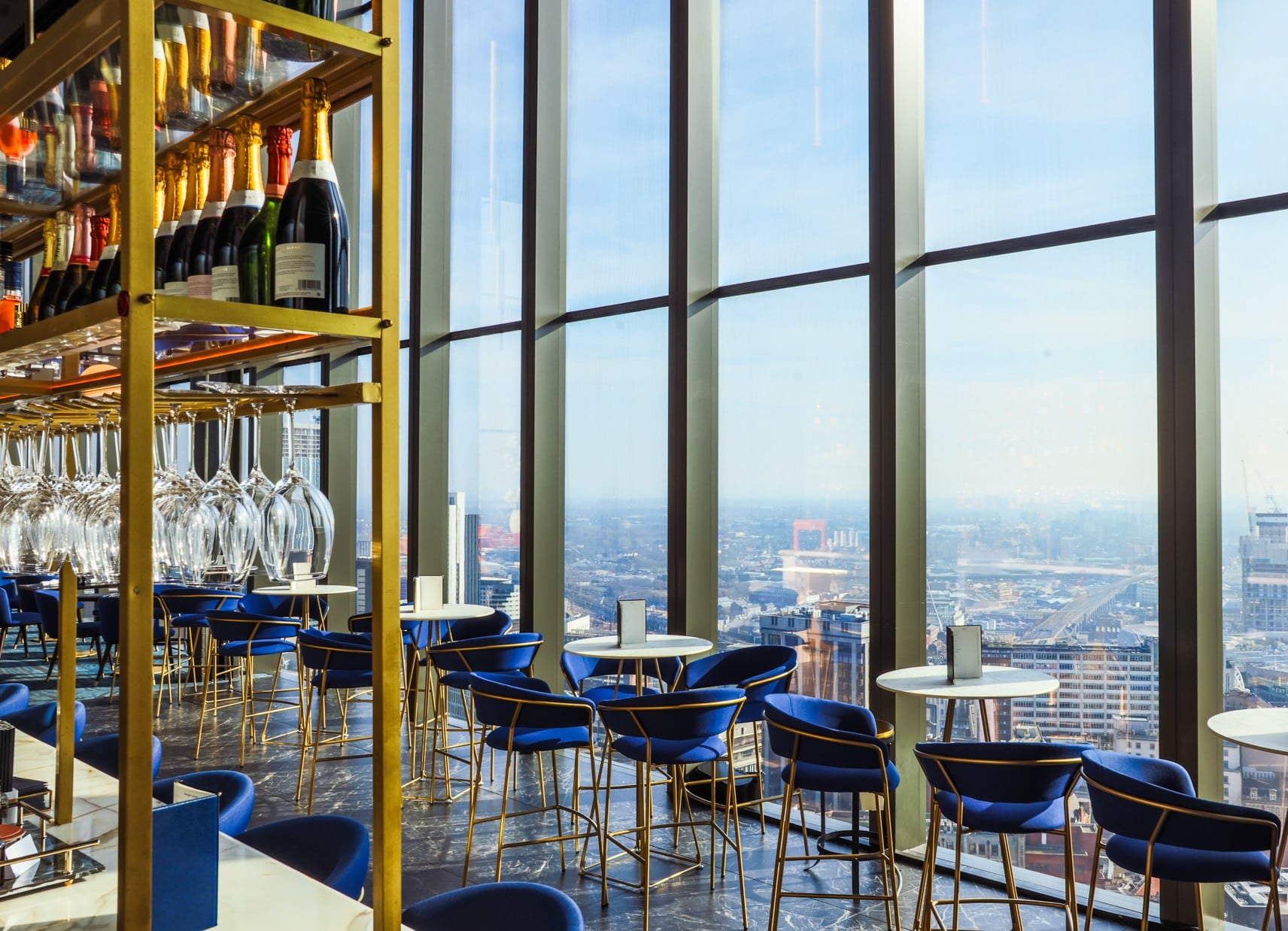
Brand building
The development and launch of Liverpool Street Chop House & Tavern is reflective of Williams’s growth plan for Evolv that will place its emphasis on four central flagship brands. They include Italian concept Sartoria, which was launched by Conran on Savile Row in 1998; Bluebird, another heritage brand from the Conran era that today has restaurants in Chelsea and the City; and the newly created Stories brand, which is encompasses the group’s high-rise locations in London, Birmingham and Manchester.
“The strategy is to identify and create powerhouse brands,” says Williams. “It starts to make sense to the consumer as they start to understand what Evolve Collection means in terms of consistency. What are the standards that can guaranteed of if I go into an Evolv restaurant? I think that was quite loose.”
It marks a move away from the original Conran approach, which focused on different restaurants each with their own individual and often chef-led vision. “That was appropriate in the 90s, but today our strength is in consolidating,” Williams says. “We have so many iconic brands in the collection that each have a rich heritage, and it would be folly to not capitalise on that.”
To that end, Evolv has already expanded the Chop House & Tavern brand to two other restaurants in its collection: Butlers Wharf Chop House near London Bridge and Paternoster Chop House, also in the City. A further two openings under the brand are planned in the next year, although Williams adds that these are likely to be new sites.
The strategy is to identify and create powerhouse brands
Alongside this, he is also branching out the ‘Tavern’ concept separately that will serve drinks alongside a compacted menu of bar snacks. Dedicated taverns are set to open near Paternoster Chop House in London and the group’s Queensyard restaurant in New York’s Hudson Yards in the coming months; the latter of which is set to open early in the new year.
As well as this, the group is expanding Sartoria and Stories. The former launched a flagship site last week in South Kensington that previously housed fine dining restaurant Launceston Place – once a notable name in the D&D stable. Evolv’s Fish Market restaurant, located directly next door to Liverpool Street Chop House & Tavern, will relaunch under the Sartoria brand in the coming months, with a further opening in Battersea Power Station also planned, taking over the company’s existing Fiume site.
Additionally, the group has acquired London wine bar group Vinoteca, another Breal Capital-backed business, which will be integrated into the Sartoria portfolio.
Elsewhere, Evolv has converted its Birmingham restaurant Orelle to 24 Stories and its 14 Hills restaurant in London to 14 Stories, which will operate alongside the group’s 20 Stories in Manchester that opened in 2018.
“Brands have always been a passion of mine,” says Willaims, discussing the strategy. “It means you can have half a dozen restaurants with the same standards and quality. You’re never going to have consistency of experience if you have all these disparate restaurants with different teams.
“Having these powerhouse brands, it gives us a platform to grow that can be stable and profitable. It feels much more controllable like this, and I am much more comfortable with it as a business model.”
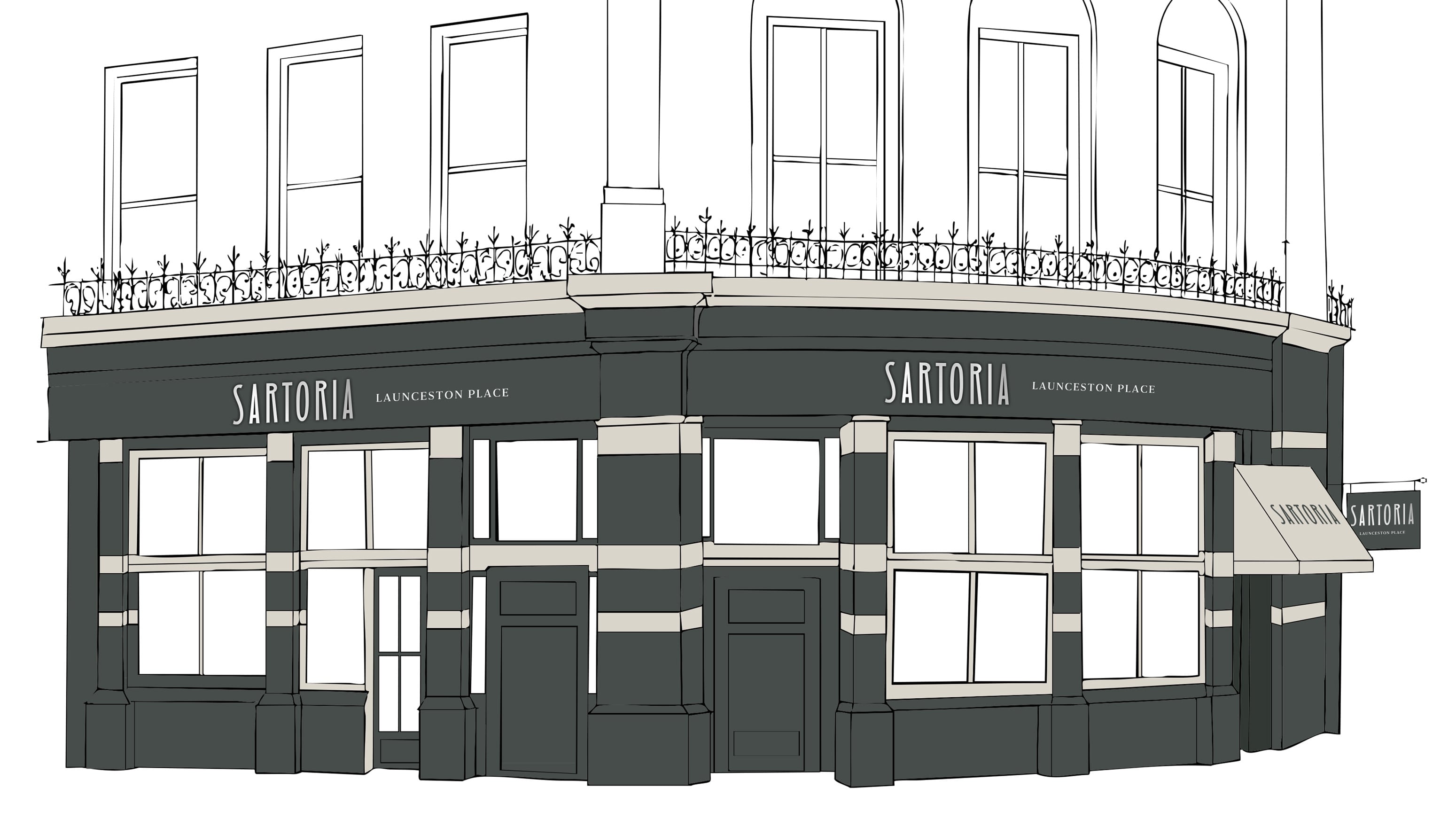
Future focus
Williams certainly has made an impact since joining Evolv. When he took the reins, the group had 27 restaurants across 26 different brands/names; by the end of the year, it will have 30 restaurants operating across 17 brands. “It’s been a huge process,” he adds, almost understating the level of change the business has already gone through under his watch.
As well as expansion, key areas of focus right now include improving the employee offer and heightening both the service offering and guest experience. “We’ve got the tools and engagement levels are high. This quarter is a huge opportunity and springboard for us to have serious growth in 2026.
“It’s easy if you’re in a big company, the sun’s shining and you have loads of events to just take your guests for granted, but I’m stripping that back. How many first-time diners have we had? How many did we generate repeat visitation from? Those are probably the elements of leadership I’ve brought to the company as priority projects.”
In terms of expansion, he signals out the US as a priority focus with further opportunities to grow in the UK also at the forefront. “We’re very privileged that we have a US set up. We’ve got a platform for US growth to do that fairly quickly. And there’s lots of opportunity there.”
Additionally, the group is considering options to return to Europe, where it previously had a foothold in Paris; and enter the Middle East.
“There are certain areas where they’re still quite hungry for great brands and the unique KPI of Evolv is we have half dozen brands created in London by Sir Terence. We have some heritage brands such as Bluebird and Quaglino’s that everybody wants, particularly in the UAE, where they want the best of London. “[These brands] were born in London and founded by a knight [of the realm]. It’s a very rich proposition that has amazing growth potential.”
We’re very privileged that we have a US set up. We’ve got a platform for US growth. There’s lots of opportunity there
Closer to home, Williams says the company has created a project designed to regain a Michelin star for Orrery. The French restaurant, which is located in Marylebone, was awarded a Michelin star in 1999 but lost it in 2008. Orrery will close for three months from January to undergo an ‘ambitious’ transformation under a new, as yet unannounced, executive chef.
Currently, the only restaurant in Evolv’s group to have a star is Angler, located in London’s South Place Hotel, which has held one since 2013.
“We have got a really exciting project with Orrery to gain another Michelin star there after a decade, which will be announced in January,” he says. “To have two stars within the collection is very important.”
Williams also has plans to revive a Japanese restaurant called Miyabi, which was once housed within in Great Eastern Hotel. “We are looking at how we can reintroduce and reimagine that brand and grow it as well,” he says, adding that more details will be revealed in quarter two of next year.
“It’s about a sensible, sustained growth strategy. One that takes advantage of the markets as opportunities arise and allows us to open the right concepts in the right place.”


